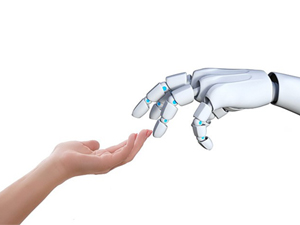



Date:21/08/18
 English-speaking artificial intelligence (AI) robots will be helping out in some 500 Japanese classrooms from next year as the country seeks to improve its English skills, particularly among children and teachers.
English-speaking artificial intelligence (AI) robots will be helping out in some 500 Japanese classrooms from next year as the country seeks to improve its English skills, particularly among children and teachers.
The education ministry is planning a pilot project costing around 250 million yen (US$227,000) to improve Japanese students’ notoriously weak oral and written English, an official said.
“AI robots already on the market have various functions. For example, they can check the pronunciation of each student’s English, which is difficult for teachers to do,” said the official in charge of international education, who asked not to be named.
AI robots “are just one example of the trial and we are planning other measures” such as using tablet apps and having online lessons with native speakers, he said.
The move comes ahead of a change in the national curriculum in two years that will require children from the age of 10 to learn English.
Japanese schools struggle to find qualified teachers for English classes and generally lack the cash to hire trained language assistants.
Some primary and middle schools have already turned to technology to bolster English teaching, introducing English-speaking AI robots in the classroom.
English classes are currently compulsory for Japanese students aged between 12 and 15, but the starting age will be lowered to primary schoolchildren in 2020.
Japan to boost English teaching in schools with AI robots
 English-speaking artificial intelligence (AI) robots will be helping out in some 500 Japanese classrooms from next year as the country seeks to improve its English skills, particularly among children and teachers.
English-speaking artificial intelligence (AI) robots will be helping out in some 500 Japanese classrooms from next year as the country seeks to improve its English skills, particularly among children and teachers.The education ministry is planning a pilot project costing around 250 million yen (US$227,000) to improve Japanese students’ notoriously weak oral and written English, an official said.
“AI robots already on the market have various functions. For example, they can check the pronunciation of each student’s English, which is difficult for teachers to do,” said the official in charge of international education, who asked not to be named.
AI robots “are just one example of the trial and we are planning other measures” such as using tablet apps and having online lessons with native speakers, he said.
The move comes ahead of a change in the national curriculum in two years that will require children from the age of 10 to learn English.
Japanese schools struggle to find qualified teachers for English classes and generally lack the cash to hire trained language assistants.
Some primary and middle schools have already turned to technology to bolster English teaching, introducing English-speaking AI robots in the classroom.
English classes are currently compulsory for Japanese students aged between 12 and 15, but the starting age will be lowered to primary schoolchildren in 2020.
Views: 470
©ictnews.az. All rights reserved.Similar news
- Azerbaijani project to monitor disease via mobile phones
- Innovative educational system to be improved under presidential decree
- NTRC prolongs license of two TV and radio organizations for 6 years
- Azerbaijan establishes e-registry for medicines
- Azerbaijani museum introduces e-guide
- Nar Mobile opens “Nar Dunyasi” sales and service center in Siyazan city
- International conference on custom electronic services held in Baku
- OIC secretary general to attend COMSTECH meeting in Baku
- Azerbaijan develops earthquake warning system
- New law to regulate transition to digital broadcasting in Azerbaijan
- Azerbaijani State Social Protection Fund introduces electronic digital signature
- Intellectual traffic management system in Baku to be commissioned in December
- Tax Ministry of Azerbaijan started receiving video-addresses
- World Bank recommends Azerbaijan to speed up e-service introduction in real estate
- Azerbaijan to shift to electronic registration of real estate





















